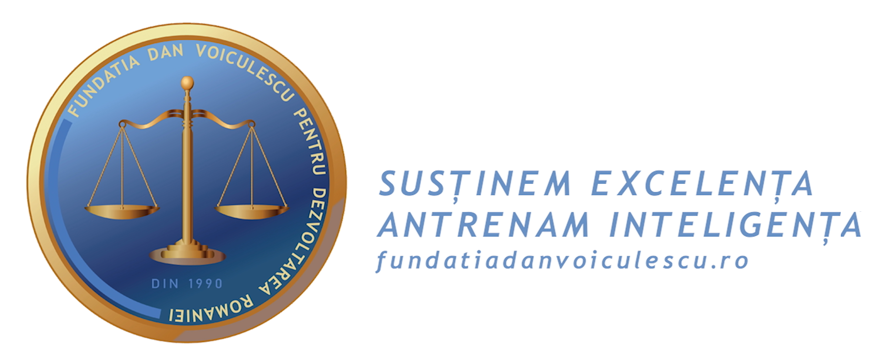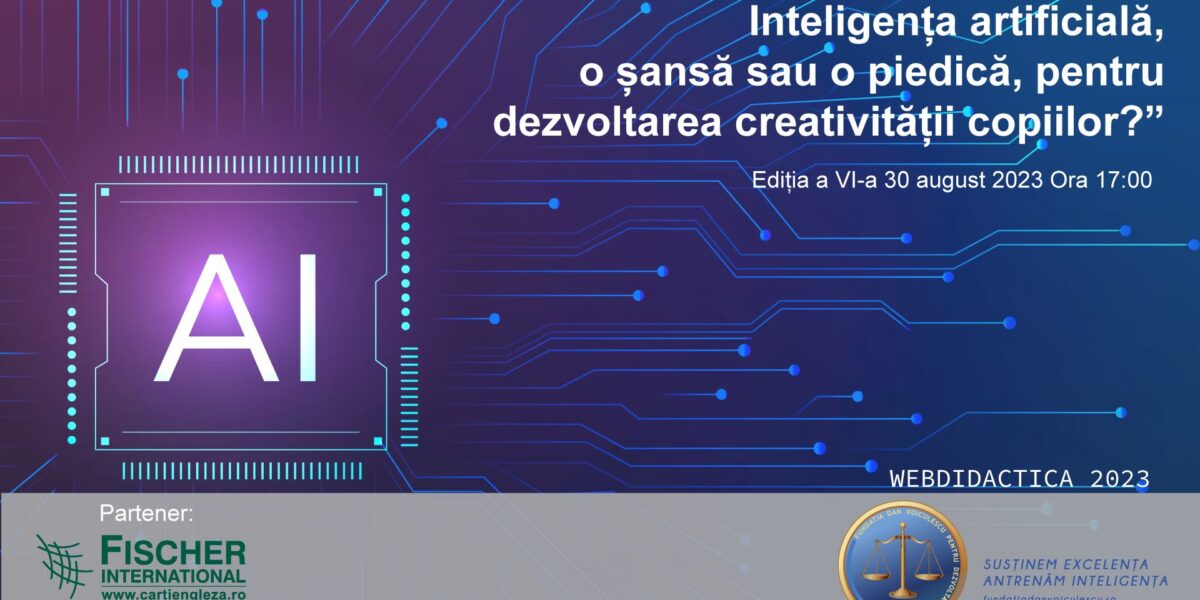The influence of AI on children was analysed by specialists in the field at the latest WEBDIDACTICA conference, organised by the Dan Voiculescu Foundation for the Development of Romania (FDVDR) on 30 August.
The event is the 6th WEBDIDACTICA conference this year with the theme "Artificial intelligence, an opportunity or a constraint for children's creative development?".
One of the speakers at WEBDIDACTICA conference was the well-known writer, television and science journalist Alexander Mironov.
He answered questions from participants, explaining that there is no need to be afraid when talking about the development of artificial intelligence (AI) and that countries such as Saudi Arabia are already funding the ideas of the future.
"They have a ministry of the future that has kept funds to later put into practice scientific ideas that are currently being formed. The world's leading scientists are drawn into this and paid to be trained to develop these ideas," Mironov said. The writer said that no later than 2035 it is estimated that every citizen of the planet in civilised countries could own a robot to help them with various tasks.
"In Japan, it is known that there are many people who are already over the age of 100. To compensate for their loneliness, many of these people already have a robot called Asimo, which is proving to be a valuable companion for a person of that age," Mironov added.
AI's influence on children: over 2 hours it becomes toxic to the human brain
Another speaker who addressed the theme of the conference by answering questions from the participants was psychologist Gabriela Maalouf. She explained that excessive use of artificial intelligence by children and young people could over time lead to a decline in emotional intelligence.
The psychologist says it's up to adults to be responsible and set limits on children's use of technology.
"Establishing limits in the use of technology is desirable, because we know from neuroscience that using more than 2 hours of this substitute for reality is very toxic to the mind," Maalouf said.
Sweden and the story of digital textbooks
Another conference speaker who spoke about the impact of digital technology on education was Prof. Corina Dumitrescu, co-founder and Director of Nordic Elite School, President of the Senate of the Christian University "Dimitrie Cantemir".
Profesara a explicat faptul că oricât am fi tentați să folosim tehnologia în educație trebuie să nu uităm și specificitățile naturii umane.
"An educational experiment has been carried out in Sweden and for the last 10 years no more physical textbooks have been used, only digital ones. Unfortunately, the experiment failed and recently the country decided to return to printed textbooks. So children's cognitive development is better done with pencil on paper than on the computer," said Corina Dumitrescu.
The influence of AI on children: Are we advancing technologically or .... stagnating?
Another speaker, special guest of the conference was Ionuț Budișteanu, engineer, former Dan Voiculescu Foundation for the Development of Romania fellow and winner of the $75,000 grand prize at the Intel International Science and Engineering Fair (Intel ISEF) in the USA.
Following this success, the American TIME Magazine nominated Ionuț Budișteanu among the most influential young people in the world. He is also the creator of the first Romanian cryptocurrency, called WebDollar.
Ionuț Budișteanu told a unique fact that contradicts to a large extent the common perception of current technology, namely that it is progressing at a fast pace. The Romanian inventor noted that in recent years the electronic processing capacity has progressed by only 20%.
"When I was a child I had a computer with a processor with a frequency of only 33 MHz. 10 years later the 1GHz processor came along, so 33 times faster. In the last ten years, processor speeds have only increased by 20%, which leads me to believe that technology has basically reached a plateau and progress is not nearly as fast as people think," the young engineer argued.
Reward for participants
The conference offered, as a prize, 50 free online invitations to Fischer International Conference 2023, which will take place from 1-2 September 2023, in which the Dan Voiculescu Foundation for the Development of Romania is an educational partner.
This month's WEBDIDACTICA conference is part of a series of events that the Dan Voiculescu Foundation for the Development of Romania periodically organizes on various topics of interest and in which nationally and internationally recognized specialists participate as speakers.
FDVDR Press Office

